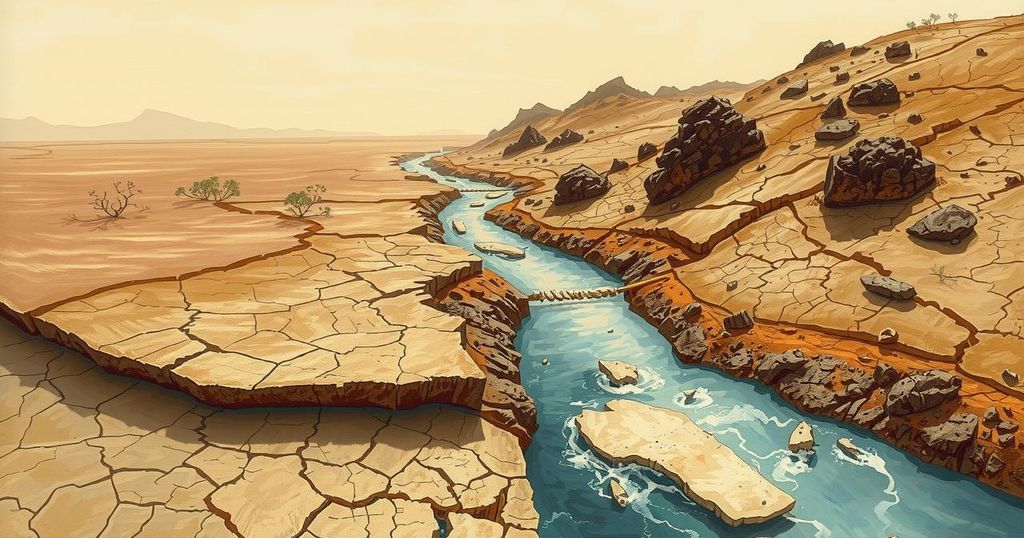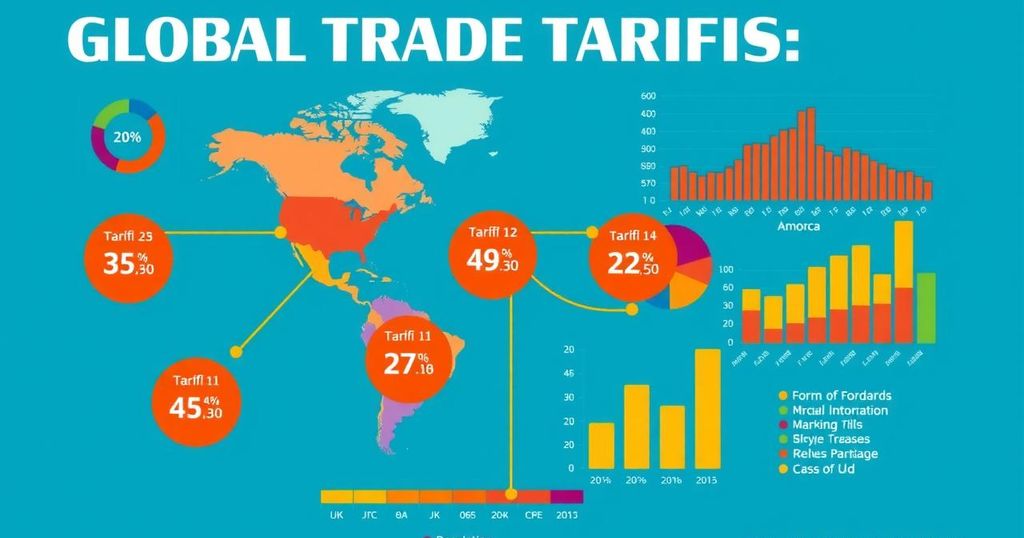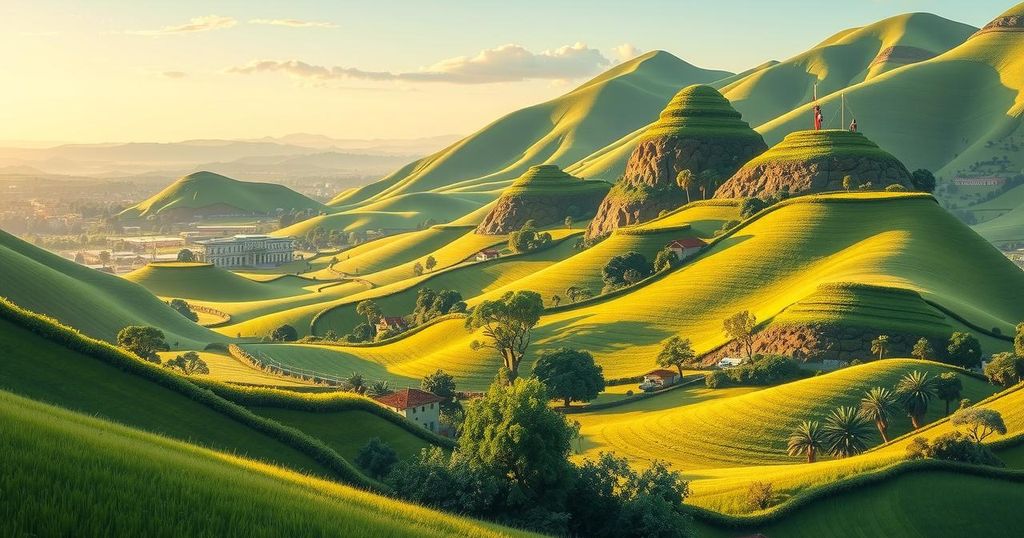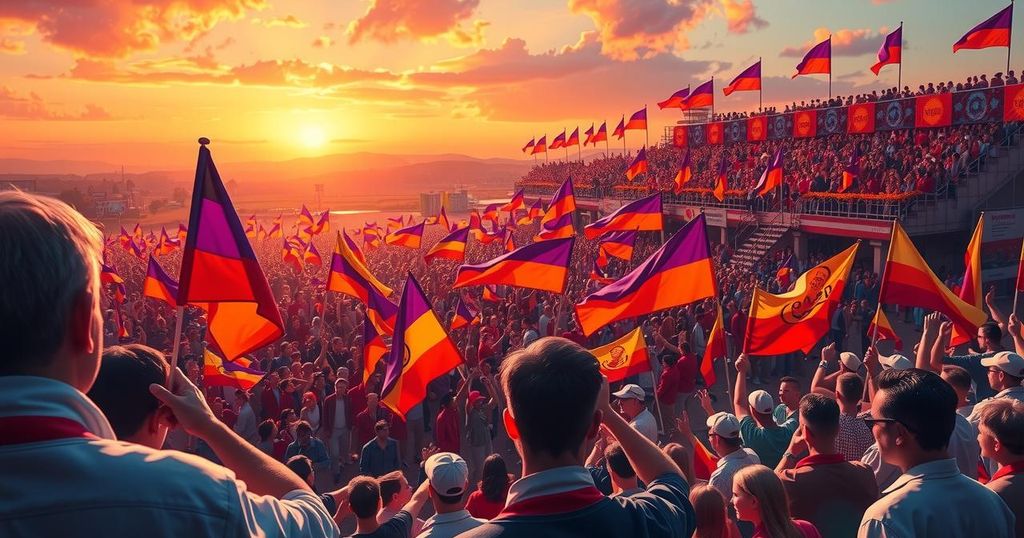Protests in Iran are intensifying, with farmers, workers, and families of political prisoners demanding justice and accountability from the regime. Key protests include Isfahan farmers seeking water rights, oil workers demanding fair wages, and families advocating against death sentences. Escalating regional violence and widespread dissatisfaction point to ongoing unrest across the nation.
Ongoing protests across Iran are gaining momentum as various societal groups demand justice and rights. Farmers in Isfahan, oil workers in Lavan, and families of political prisoners in Tehran have united in their demonstrations, expressing discontent toward the Iranian regime’s handling of critical issues such as water mismanagement and labor rights.
On March 28, Isfahan’s farmers rallied to claim their water rights, particularly seeking the reopening of the Zayandeh River. Years of regulatory neglect and water diversion for military industries have devastated agricultural livelihoods. Despite a recent release of water from the Zayandeh River dam, there is a prevalent skepticism regarding the regime’s commitment to adequately address farmers’ needs. “We only want water, yet they steal it and tell us not to protest. How can we stay silent?” voiced one farmer during the demonstration.
Additionally, on March 26, workers from the Iranian Offshore Oil Company in Lavan initiated protests, emphasizing demands for fair wages and better job classifications. In Shush, workers at Haft-Tappeh Sugarcane Company protested job insecurity, reflecting a broader sentiment of dissatisfaction among Iran’s labor workforce. The government’s neglect of these pressing labor issues has intensified their frustration and fears regarding future economic stability plagued by inflation.
The families of political prisoners in Tehran continued their weekly demonstrations on March 25 as part of the “No to Executions Tuesdays” initiative. Protesters have called for an end to death sentences, particularly outraged by the cases of Vahid Bani-Amerian and Pouya Ghobadi, both facing execution.
Compounding the unrest, an attack on a police patrol in Iranshahr on March 27 resulted in one security officer’s death and two injuries, signaling heightened regional tensions. Amid all this, Iran’s regime is confronted with increasing resistance from various societal sectors.
The current wave of protests illustrates the collective discontent toward systemic corruption and repression, as demonstrators demand action on issues ranging from water scarcity to labor rights and justice for political prisoners. The patterns of unrest underscore an evolving landscape of dissatisfaction likely to persist in the foreseeable future.
The protests across Iran signify a unified outcry from diverse social groups, including farmers, workers, and families of political prisoners, against government mismanagement and repression. As discontent with systemic failures grows, the ongoing unrest showcases the people’s demand for justice and their refusal to remain silent in the face of systemic injustice. The Iranian regime’s response to these protests will be critical in determining the climate of unrest moving forward.
Original Source: www.ncr-iran.org




